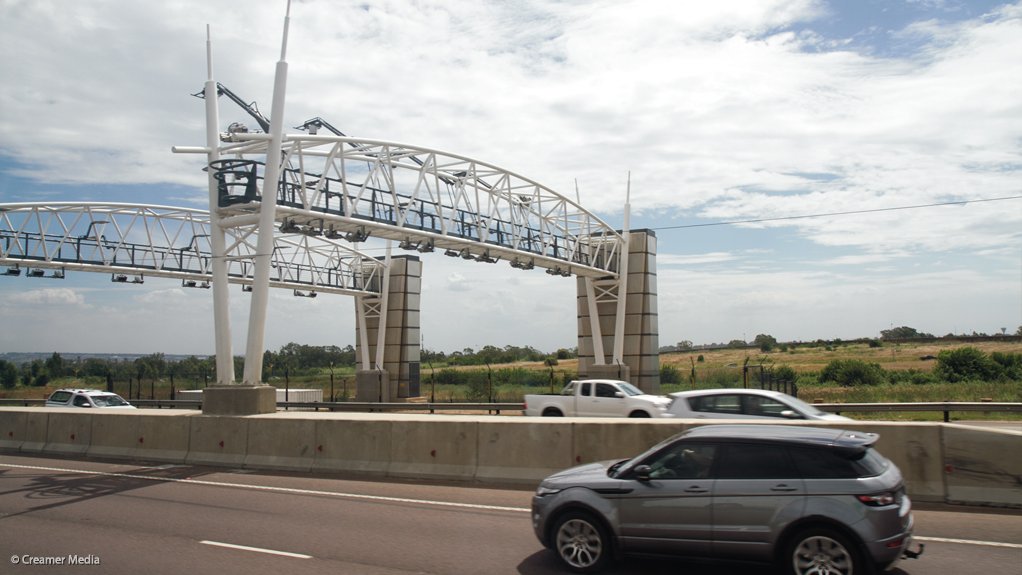/ MEDIA STATEMENT / The content on this page is not written by Polity.org.za, but is supplied by third parties. This content does not constitute news reporting by Polity.org.za.
On Friday 23 May, 2014 the Minister of Transport revealed that “no decision has been taken to introduce the e-tolling system in KwaZulu-Natal”. This comes after media reports announcing the introduction of e-tags in KwaZulu-Natal was to commence and people jumped to incorrect conclusions that this meant that e-tolls, or “Open Road Tolling” would be introduced there.
Reassurances were also extended to those in the North West province by the Minister and she reportedly said “We are currently focused on resolving some of the challenges emanating from the introduction of electronic tolling in some parts of the Gauteng province. SANRAL and the service provider responsible for the Gauteng Freeway Improvement Project should continue to focus on resolving these current challenges.”
The introduction of e-tag enabled boomed lanes on traditional toll roads, whilst possibly being a new convenience concept for KwaZulu-Natal is not new at all and has been in use on such toll roads as the Bakwena toll concession operated on the N1 and N4 for many years. Only recently were users of e-tag enabled lanes on these routes not so politely told that their e-tags would become active on the GFIP, regardless of whether they wanted them to or not.
Effectively, e-tags used for dedicated, boomed lanes at traditional toll plazas have therefore become a precursor to e-tolling on what is termed “Open Road Tolling” projects like the “some users pay principle” on the GFIP.
It must be remembered that the Courts have been told that the “user pays principle” as well as e-tolling is “National Government Policy” and therefore, the courts have deemed that they may not interfere in Government policy. However, it is abundantly clear that – far from being national policy, government is doing everything it can to reassure road users in other provinces that they will not become victims of what has been forced on Gauteng.
While it is indeed prudent for proper, meaningful public consultation to take place in other provinces and all other possible alternatives to be considered, the question must be asked why it is that Gauteng should be the only “lab rat” to be abused and prejudiced by e-tolling of urban freeways.
There can be little doubt that affected parties in other provinces will be far more eager to participate in public consultations with SANRAL with respect to e-tolling their urban roads, but if their experience is even remotely similar to what happened in Gauteng, it is questionable whether any blind notice will be taken of their inputs.
We don’t say this lightly, given the track record of SANRAL, which is very good at reading the riot act to people and making autocratic decisions, but lacks the capacity and willingness to listen to any voice/s other than its own.
Whether the “challenges emanating from the introduction of electronic tolling in some parts of the Gauteng province”, namely Johannesburg, Ekurhuleni and Tshwane can in fact be resolved or not remains to be seen. There is no getting away from the fact that whilst it is possible for people to alter or obscure their number plates, affix cloned or false number plates, remove their number plates entirely, or indeed – simply not pay, “Open Road Tolling” is and will remain a “some users pay principle”. This is without even contemplating vehicles that cross our borders from bordering countries – whose owners/drivers will most certainly not be extradited to stand trial for not paying e-tolls.
At some stage or another, both SANRAL and the Department of Transport are going to have to stop using Gauteng motorists as lab rats and face the fact that e-tolling is simply not suitable for our environment and that there are other, way more efficient methods of securing funding for roads infrastructure. Simply saying that the fuel levy cannot be ring-fenced is a copout, given the fact that the abuse of funds from the fuel levy originated in the 1970’s when they were used to fund the illegal occupation of Namibia and the Angolan War.
One seriously has to wonder why it is that government seems to have corrected some of the wrongs of the apartheid era, while retaining other policies and wrongs which are apparently convenient to it and misusing the fuel levy is far from the only example of this remarkable phenomenon.
EMAIL THIS ARTICLE SAVE THIS ARTICLE
To subscribe email subscriptions@creamermedia.co.za or click here
To advertise email advertising@creamermedia.co.za or click here











